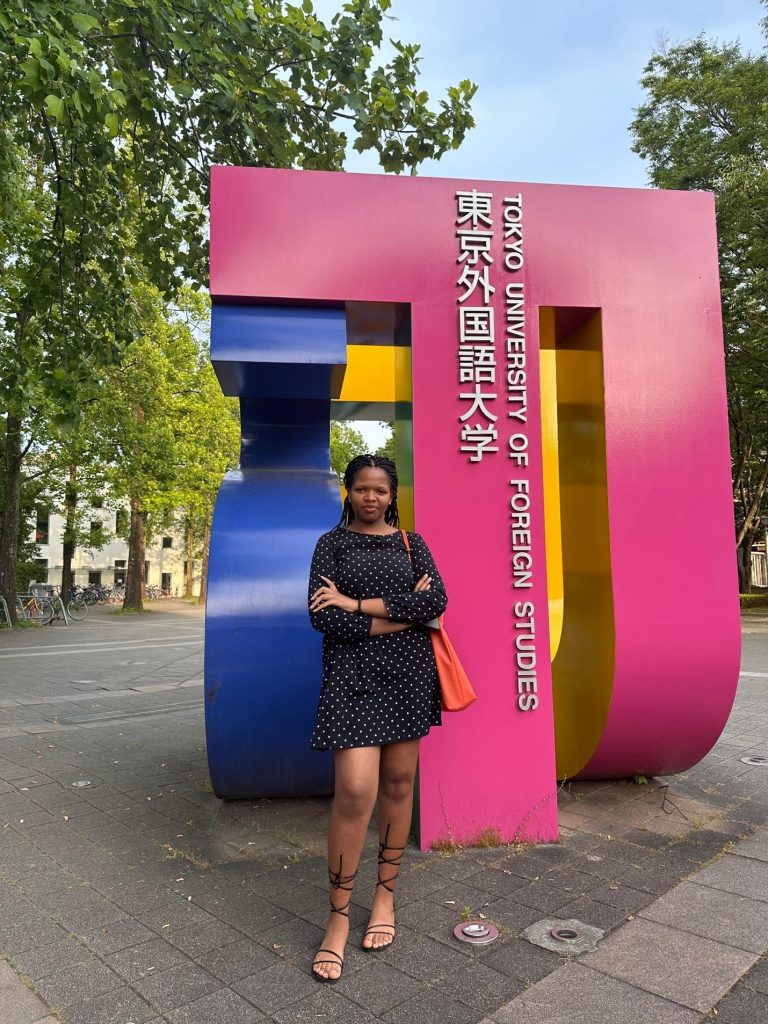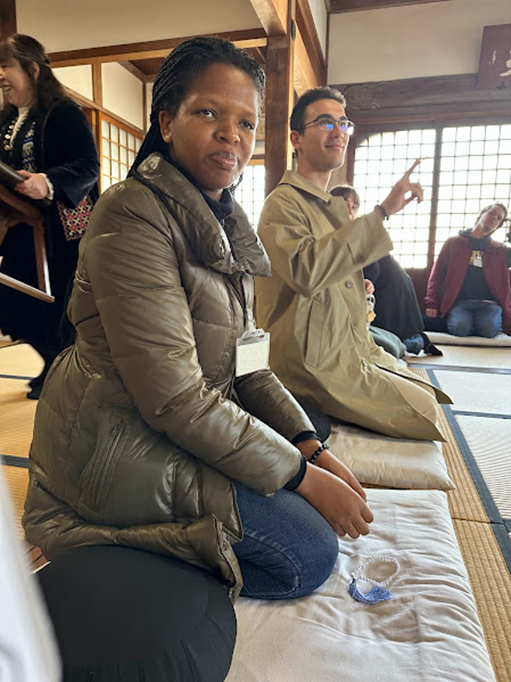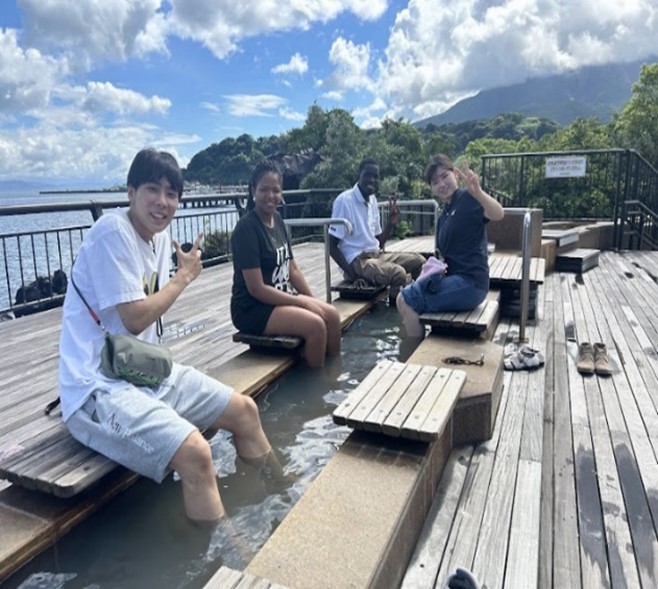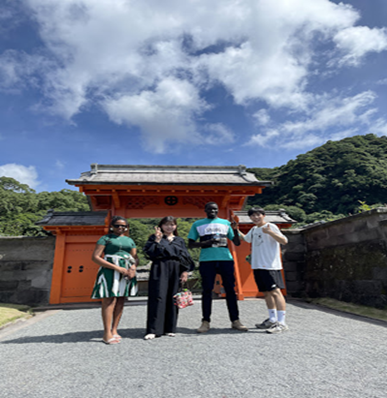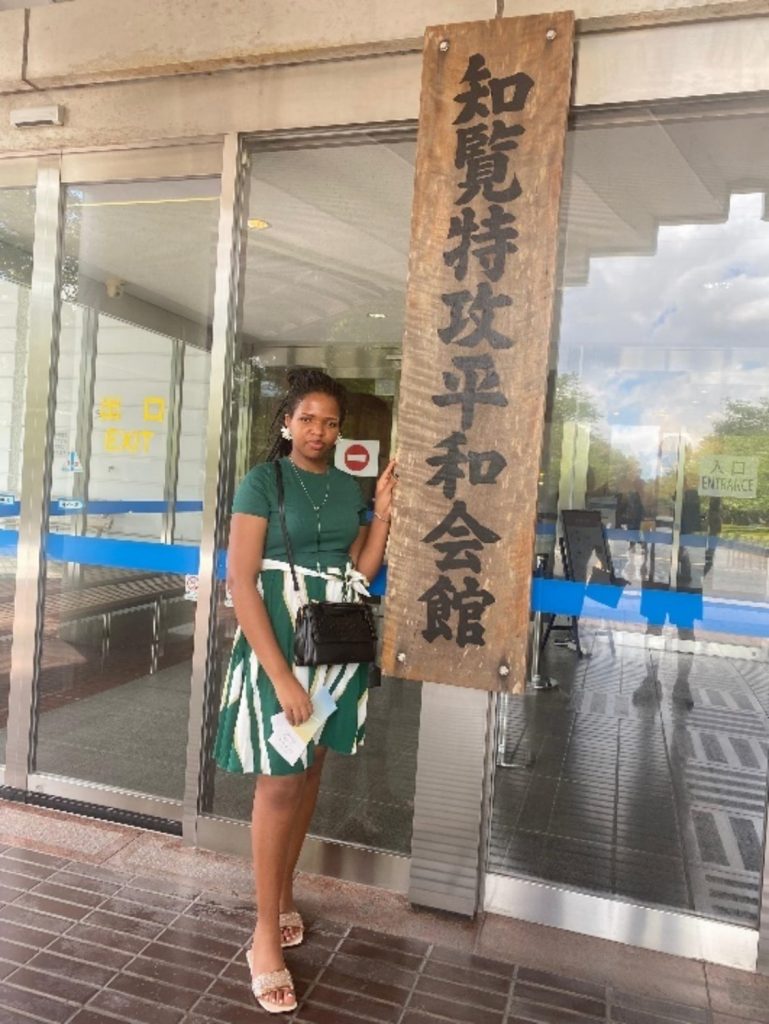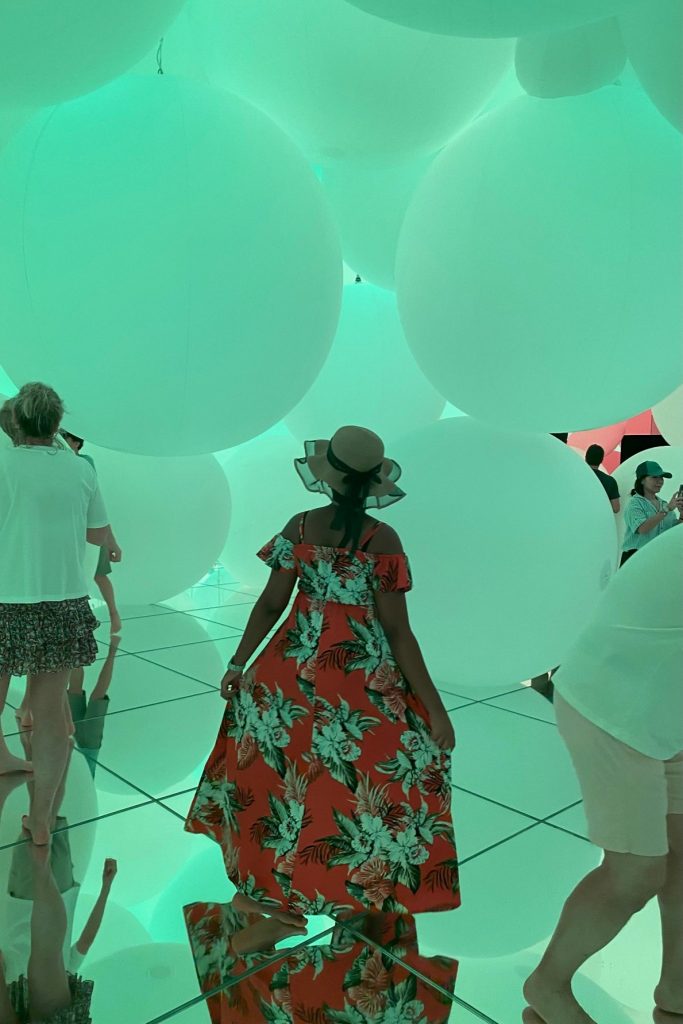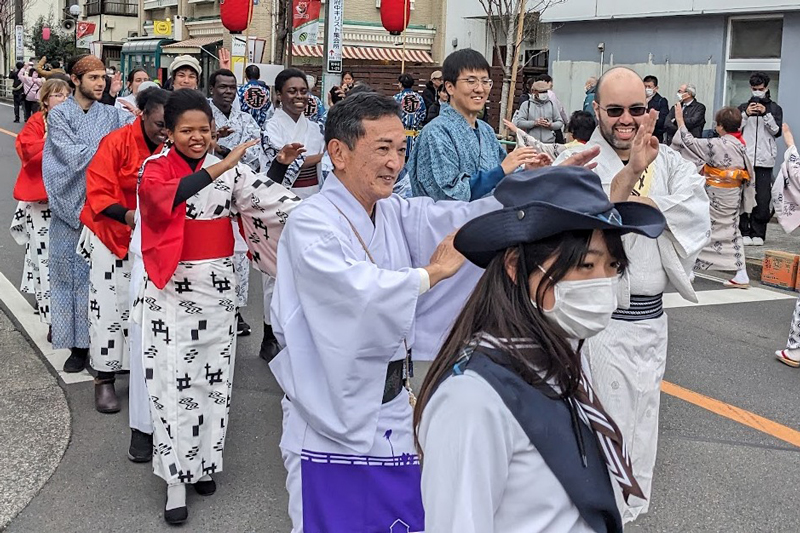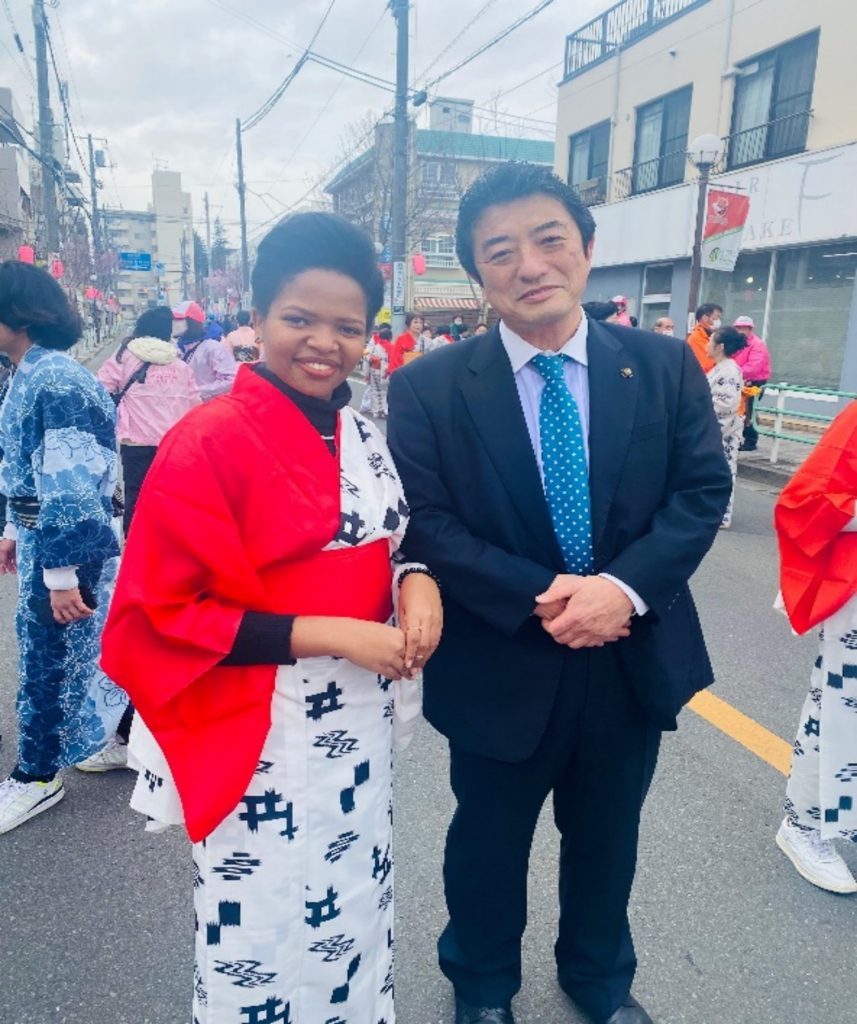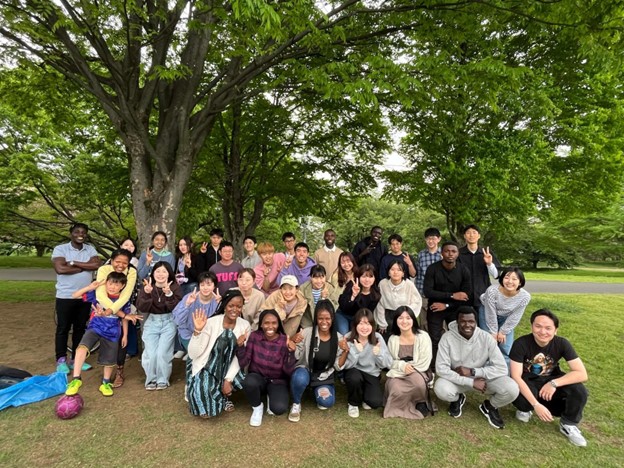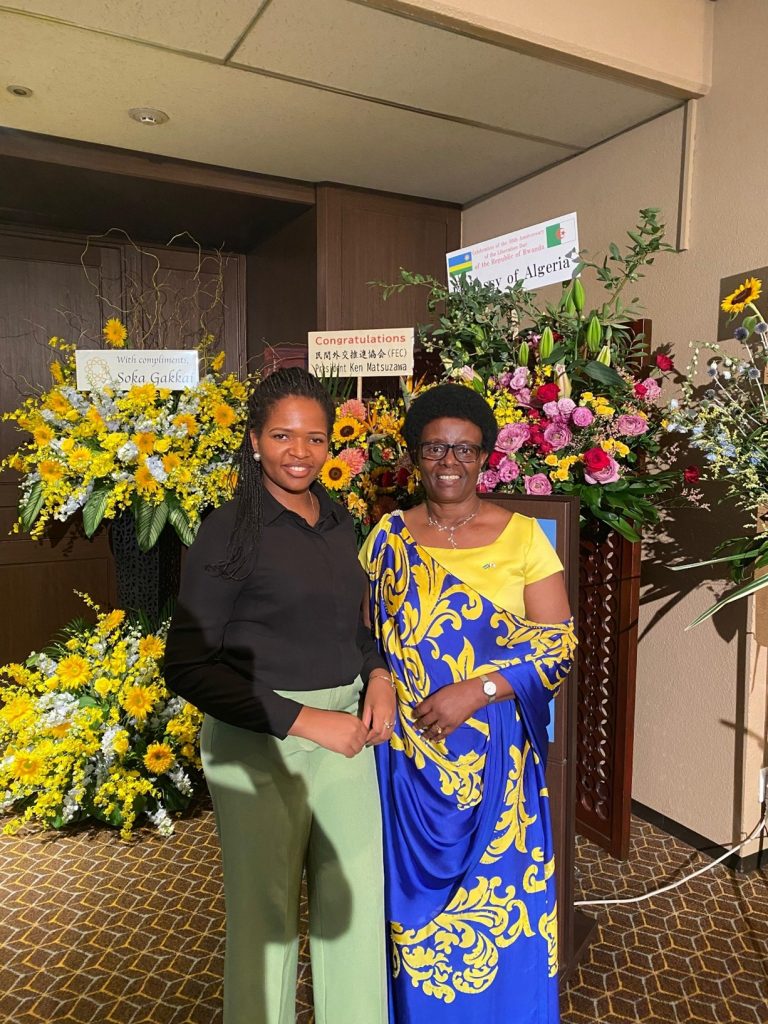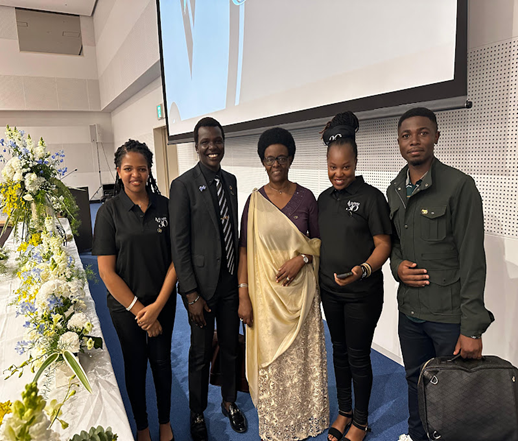[Study in Japan Report] By Grace from PUR (Rwanda)
Nyampinga Marie Grace our former exchange student from Protestant University of Rwanda (PUR), who studied in Japan from September 2023 to July 2024 wrote an essay of her stay in Japan. Please check it out!!
I am Nyampinga Marie Grace, a university student at the Protestant Institute of Arts and Social Science (PIASS) and I am Rwandan.
From September 2023 to July 2024, I participated in an exchange program at the Tokyo University of Foreign Studies and studied and lived in Tokyo, Japan. I’ll go into greater detail about my experiences in my social and academic lives while I was living in Japan.
Firstly, I would like to start by expressing my gratitude to the International Student Exchange Program (ISEP) and JASSO for offering me a scholarship that covered my expenses at TUFS. I would like also to thank the African Study Center, Student Exchange Division, and International Student Support Association (ISSA) for the great support they provided to me. Lastly, I would like to say thank you to my home university Protestant Institute of Arts and Social Sciences which turned into the Protestant University of Rwanda for allowing me to go and learn from Japanese society and to Prof. Kazuyuki, a head of the Department of Peace and Conflict Studies for his assistance in document process and follow up after I arrive in Japan.
Academics
Starting with my studying experience, at TUFS I enrolled in different classes that were aligned with my program of peacebuilding and development. I could study from many lecturers in various environments therefore this was an outstanding chance for me.
This increased my level of understanding of my program. Among the courses I took was teaching about World War II which Japan was involved in and post-war reconstruction. It was my sincere expectation to gather knowledge from Japan’s remarkable recovery from the war and the bombings of Hiroshima and Nagasaki.
I had taken a course at my home university on the subject of the US Military Base in Japan and many peace movements have been accomplished, so learning Japanese was a pleasant experience for me.
Also, I enjoyed the class of Japanese language classes at JLC (Japanese Language Center). This was my expectation to learn the Japanese language and it was more enjoyable because of professional lectures with good teaching techniques that are easy for beginners. Taking this course was useful because it introduced to me the basic sentences and words that guided me during my stay in Japan after memorizing all the Hiragana and Katakana characters.
Additionally, I had classes on intercultural communication in the course of Aspect of Contemporary Japan 2. In this course, I learned about international cultures from different students and how people understand and interpret the world from their perspectives. I was glad to learn about Japanese culture and norms from Japanese students. This helped me to live in Japan while I didn’t violate any cultural rules. I also learned the types of nonverbal communication, High and Low Context Communication Styles, Monochronic Time and Polychronic Time, Collectivism and Individualism, Power Distance, Culture Shock, and Clear, and Effective Communication.
Furthermore, I had a course in Culture and Arts 2, in this course we watched different movies related to the culture and social life of the Japanese which gave me more pictures of Japan and my group presented a movie called “My Small Land” directed by Emma Kawawada. However, our group made a movie we called “Nihon-Jin” that showed the life of international students in Japan and how they love and wish to be like Japanese.
The teaching style was different from my school, particularly in the course on Career Design and Development. I found this course interesting and helpful because it helped me to reflect on myself and my way forward to what I need to achieve. Additionally, I had a course about Southern East Asia that gave me an image of more Asian countries and their relation with Japan. This was kind of new to me because I had less knowledge about East Asia.
However, I had other many classes including Historical Studies, International Organizations, Peace and Conflict Studies, International Cooperation, Japanese Culture 1, Practical English 1&2, and Introduction to Social Relations. All these courses gave me new skills and knowledge and different experiences that will guide me in my future career.
Visits and Experience
During my stay in Japan, I visited different historical and tourist sites. The idea was to explore and learn from Japanese society and its achievements. I was very interested in religion, this guided me to visit many different shrines and temples to have experiences of religion that are different from mine. I visited some such as Yasukuni Shrine, Tsurugaoka Hachimangu Shrine, Fuji-san Hongu Sengen Shrine, and Jindaiji Temple, and many others. I learned Japanese traditional Tea making at Choko-ji Temple in Numazu/ Shizuoka Prefecture. Additionally, I also practiced traditional Rice Cake making at Asagiri Kogen Mochiya Campsite. I also ate different Japanese dishes and I enjoyed them. So far, Okonomiyaki, Sushi, and O miso soup have been my favorites.
I also had a great opportunity to see the ocean and sea and visit different beaches during my free time, especially during the summer season, and hot springs and onsen during the winter season. Apart from Shizuoka Prefecture, I also visited other prefectures out of Tokyo including Tochigi, Yokohama, and Kagoshima Prefecture.
During my visit to Kagoshima with my colleagues, a Japanese family hosted us for three days and we had a memorable time. I got a chance to visit statues and learn about Saigo Takamori who worked and fought for Japanese culture and development. However, I also visited the Kagoshima World Cultural Heritage Orientation Center to learn about Japan’s Meiji Industrial Revolution. In the same prefecture, I also had the privilege to visit the Chiran Peace Museum for Kamikaze Pilots. This museum was built to commemorate the lives of the pilots and document their patriotic efforts for peace. However, learning was not only in the classes but also at different historical sites.
Furthermore, I visited Tokyo Sky Tree during the Koinobori festival with a Japanese friend. Last but not least, I visited Team Lab Planets at Toyosu, Tokyo. It was an amazing moment when I walked through water and a garden of flowers.
I want to thank ISSA for allowing me to experience the Minyo-Nagare dance (folk dance performance) in Fuchu City during the Sakura season (cherry blossom). They brought native Japanese to teach us to dance and, on that day, they borrowed Yukata and we could perform looking nice.
Additionally, I attended different seminars and events both at TUFS and outside. As an African, with the knowledge of Student Exchange Division/TUFS, they invited us to many different collaborative events of Africans and Japanese. The main idea was to share the culture and learn from each other’s experiences and I had the opportunity to speak in some of them.
During the holiday, I volunteered at Seibo Japan, where they advocate for charity and donation through selling Malawian coffee and the money goes to the program, they have of feeding every hungry child a hot meal at school in Malawi.
During my stay in Japan, the challenges were not very hard, because in the beginning the language was an issue but after taking Japanese language classes, I was able to express my need and request in Japanese. The weather challenged me because in my country, Rwanda we don’t have either winter or hot summer like Japan. So far spring has been my favorite season in Tokyo because it’s almost the same as the weather in Rwanda. As a Rwandan citizen, I had the opportunity to participate in different events and activities at Rwanda’s embassy in Japan and I was glad to meet different diplomats, Japanese leaders, and ambassadors of Rwanda in Japan.

